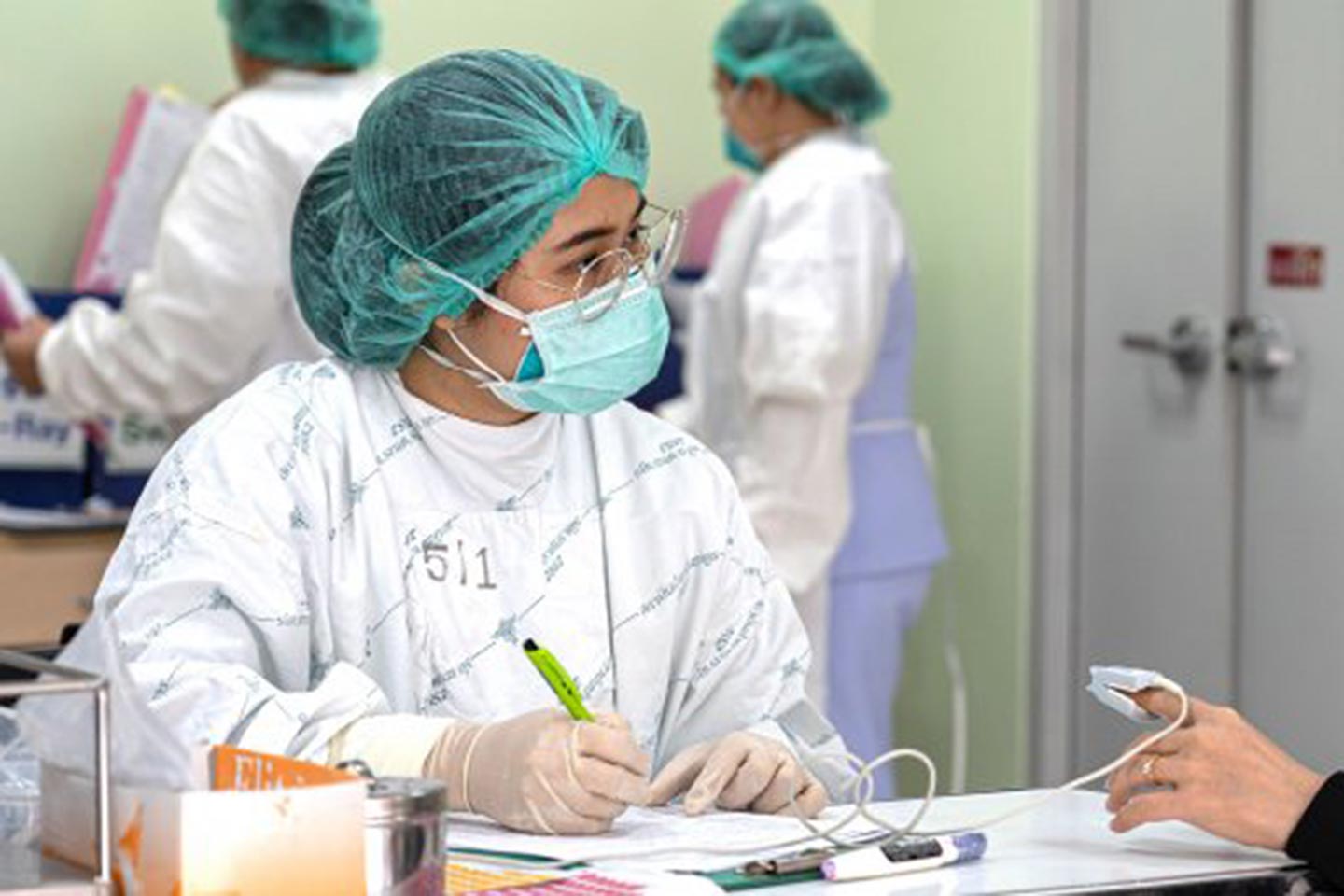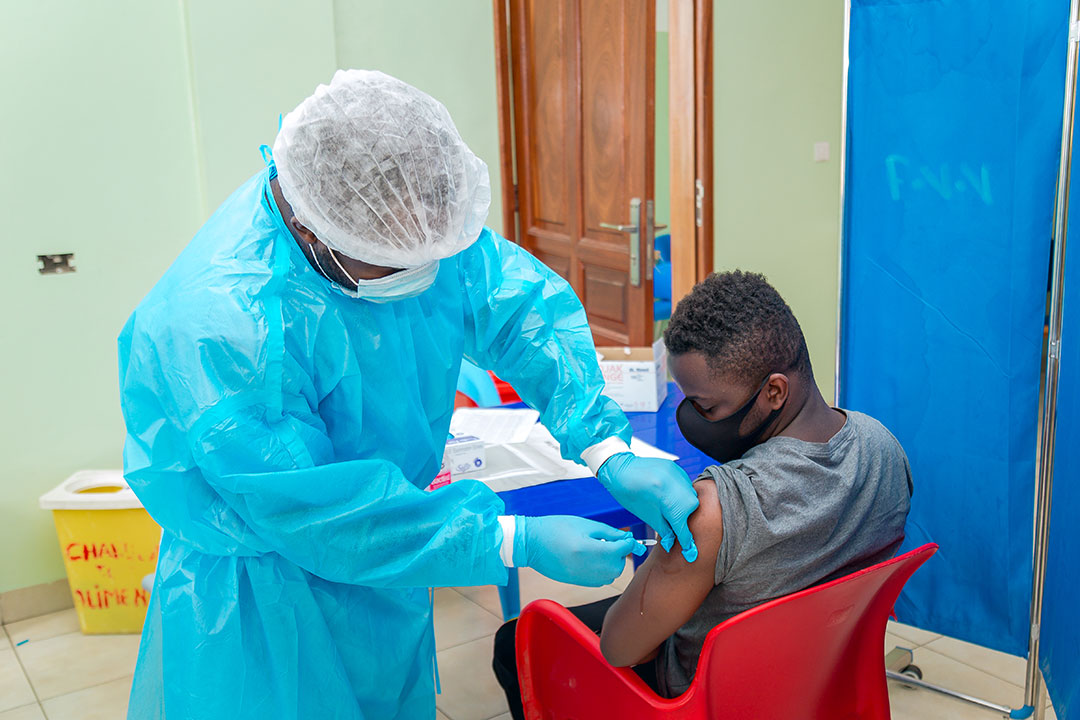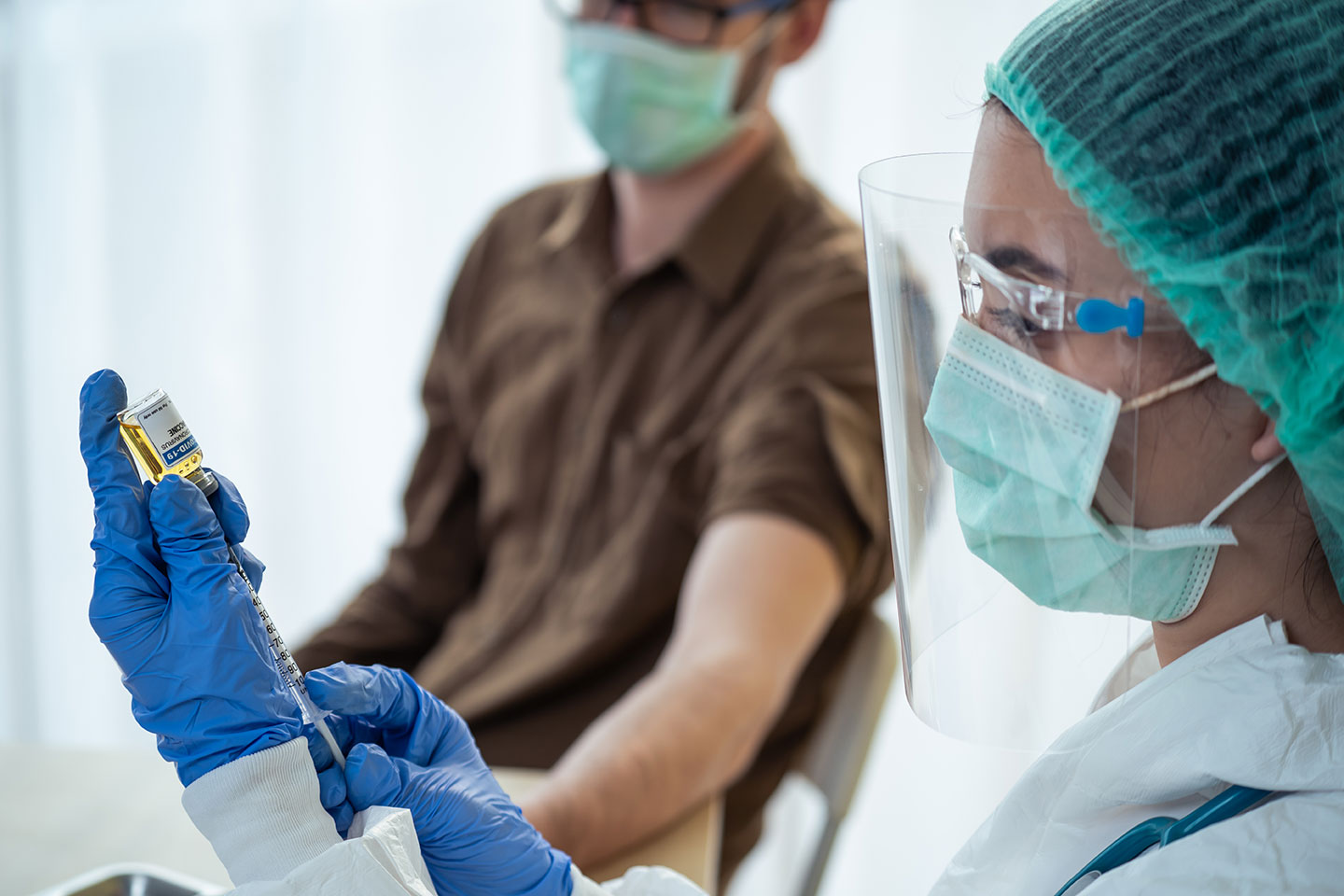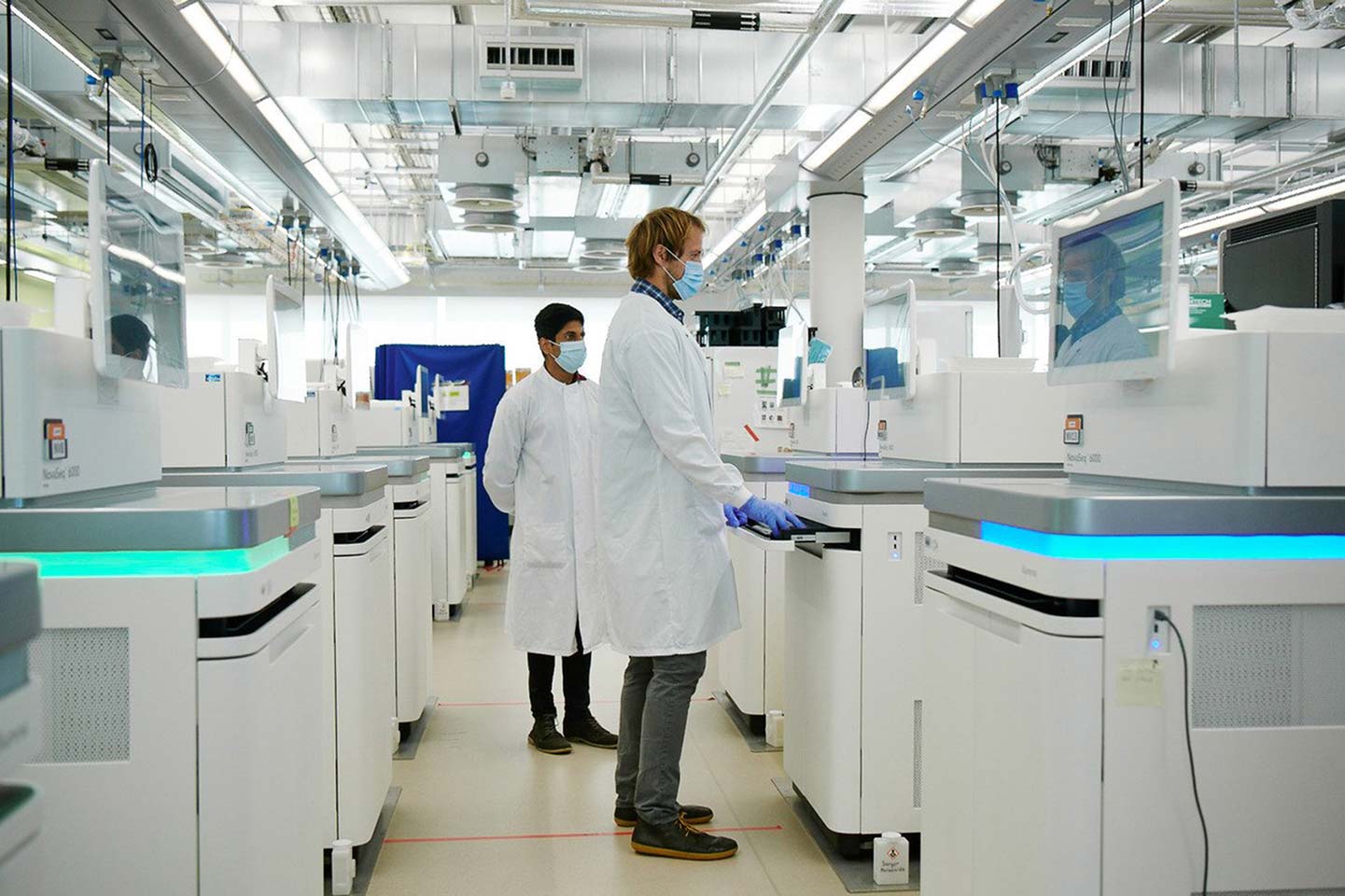Once we have effective Covid-19 treatments, it shouldn’t only be the rich who benefit
We need a range of treatments to make Covid-19 preventable and treatable. Jeremy Farrar describes recent progress made by research and why more investment is needed.
- 19 October 2020
- 5 min read
- by Wellcome

Original article
This article was first published in The Guardian on 12 October 2020 and republished from Wellcome.
We all want a cure for Covid-19, but it won’t come in a single drug. Neither can we expect to escape this global crisis if treatments, tests or vaccines are not made available to those most vulnerable worldwide. There’s a long way yet to go.
Robust research has shown that hydroxychloroquine, the drug once heavily promoted by Donald Trump, doesn’t work as a treatment. We wait in hope for the first vaccines but must be realistic: they may only provide partial protection, important as that will be. Now, as the US president pins his hopes on Regeneron’s antibody cocktail, it must be made clear: life can only return to normal with a range of clinically proven, effective treatments, tests and vaccines; the resilient health systems to deliver them; and the trust of the public.
More than a million people have lost their lives to the virus in just 10 months, and each day still brings a daily record of new cases. Others are suffering from 'long Covid' and its debilitating long-term effects. In the UK, as we head into winter, hospitalisations from Covid-19 rise and a new three-tier system of mini-lockdowns is introduced, we urgently need a range of high-quality treatments to protect people.
Unitaid, the World Health Organization and Wellcome through the ACT-Accelerator global partnership secured 2.9 million treatment courses for low- and middle-income countries.
Though catapulted into the spotlight through Trump’s diagnosis, treatments have often been overlooked in favour of the much-coveted vaccines. To date, $2 billion (£1.5 billion) has been invested in vaccines – six times more funding than treatments. Yet the world needs $7.2 billion just for effective treatments, without which millions more lives remain at risk. It’s a lot of money, but with the global economy expected to contract by $12 trillion in 2020 alone, it’s a fraction of what we are currently losing every day.
At the moment, there is only one proven treatment that reduces mortality from Covid-19: dexamethasone. This widely available and affordable steroid has been used safely for decades, and can improve survival when used in patients in hospital with Covid-19 who need oxygen or are ventilated. But it does not work in those patients not on oxygen. We also know that the antiviral drug remdesivir can help speed recovery for severely ill patients, reducing the average hospital stay by around four days.
Have you read?
It is not surprising that months of research have led to so few treatments. We always expected many trials to fail. Our best shot in the short term has been to explore whether existing drugs show any benefit – trying everything from anti-malarial drugs to those used to treat arthritis. They are safe, affordable and easy to produce around the world. If they’re effective against Covid-19, we can ensure they will be accessed by those most in need in a matter of weeks.
For example, less than 20 days after dexamethasone was identified as a treatment (by the UK-based Recovery trial), Unitaid, the World Health Organization and Wellcome through the ACT-Accelerator global partnership secured 2.9 million treatment courses for low- and middle-income countries. The partnership is poised to act as soon as there is clear evidence on safe and effective new treatments.
We must be realistic about what we can expect from repurposing drugs that have been designed for other diseases, but we should still exhaust all options.
Finding treatments that work across all stages of the disease – especially mild and moderate cases to stop progression to more severe disease – would be a game-changer. In the limelight last week, monoclonal antibodies, the first treatments specifically for Covid-19, could well be among them.
Trump has touted the benefits of Regeneron’s experimental monoclonal antibody cocktail, which has not yet finished its final clinical trials. Eli Lilly's monoclonal antibody treatment also looks very promising. If successful, these could drastically reduce the likelihood of mild symptoms becoming severe, as well as save lives for those with severe disease. There is huge potential.
In the 30 years they’ve been around, monoclonal antibodies have been transforming the way doctors treat, prevent and cure serious non-communicable diseases: last year, seven of the 10 bestselling novel drugs were monoclonal antibodies for cancer and inflammatory diseases. But they are traditionally among the most expensive treatments in the world: 80% are sold in the US, Europe and Canada, and few, if any, are available in low- and middle-income countries.
Covid-19 should be the catalyst to addressing the prohibitive expense of these drugs and making them accessible for everyone. This will require new ways of thinking, technological innovation, new types of collaborating and doing business, but I am confident that academia, industry and governments around the world can find solutions together. This could transform the treatment of Covid-19 but also ensure the monoclonal antibody class of drugs are globally accessible and affordable for many diseases.
As the UK enters a critical winter, we should take stock of the many advances made since the start of the year. Medical staff now have experience of this disease: they know how to position patients, how to use fluids, how to stop the blood clotting and when to use ventilators. Their knowledge will prove invaluable as more people are admitted to hospital.
Alone, these measures and treatments will not be a magic bullet. But together, when combined with first-generation vaccines and essential public health measures to reduce transmission, they give us every reason to be hopeful. In the near future, Covid-19 will be a preventable and treatable disease. We must make this true for everyone, wherever they live or however rich they are. And whether they are a president or not.









